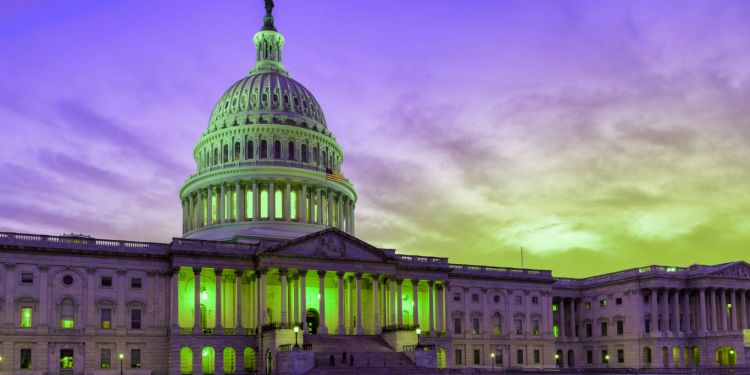A top regulator is explaining the significance of cryptocurrency in the current economic climate and in the future of banking to the US Senate.
As part of his testimony during a hearing held by the Senate Committee on Banking, Housing and Urban Affairs, chief officer of the Office of the Comptroller of the Currency (OCC) Brian Brooks provided details on the efforts the OCC is taking to ensure the federal banking system continues to be a source of strength and relief to consumers, businesses and underserved communities during the pandemic.
Brooks highlights the importance of the innovations in cryptocurrency that have benefited millions of American consumers and businesses.
“Today, roughly 60 million Americans own some type of cryptocurrency, with a total market cap of nearly $430 billion. These figures clearly illustrate that this payment mechanism is now firmly entrenched in the financial mainstream.
Cryptocurrency has become a popular mechanism for sending and receiving payments for goods and services because transactions post in real time and provide convenience and security. Cryptocurrency also describes categories of specific currencies of value, and the rise in the use of stablecoins demonstrates consumers’ comfort with its use.”
As Americans continue to embrace innovation and new ways of accessing financial services, Brooks says the OCC has an obligation to provide regulatory guidance, promote responsible innovation and support the development of safe, prudent, and fair financial infrastructures.
To that end, Brooks details the important steps taken by the OCC in 2020 to provide regulatory clarity within the crypto industry.
“On July 22, 2020, the OCC published an interpretive letter clarifying national banks’ and federal savings associations’ authority to provide cryptocurrency custody services for customers. National and state banks and thrifts have long provided safekeeping and custody services, including physical objects and electronic assets. The OCC has specifically recognized the importance of digital assets and the authority for banks to provide safekeeping for such assets since 1998.”
In September, the OCC published another interpretive letter that authorized federally chartered banks to hold stablecoin reserves on behalf of issuers, provided that banks comply with anti-money laundering regulations, and put mechanisms in place to ensure that their customers have enough assets to back their deposits.

Disclaimer: Opinions expressed at The Daily Hodl are not investment advice. Investors should do their due diligence before making any high-risk investments in Bitcoin, cryptocurrency or digital assets. Please be advised that your transfers and trades are at your own risk, and any losses you may incur are your responsibility. The Daily Hodl does not recommend the buying or selling of any cryptocurrencies or digital assets, nor is The Daily Hodl an investment advisor. Please note that The Daily Hodl participates in affiliate marketing.
Featured Image: Shutterstock/Lucky-photographer











